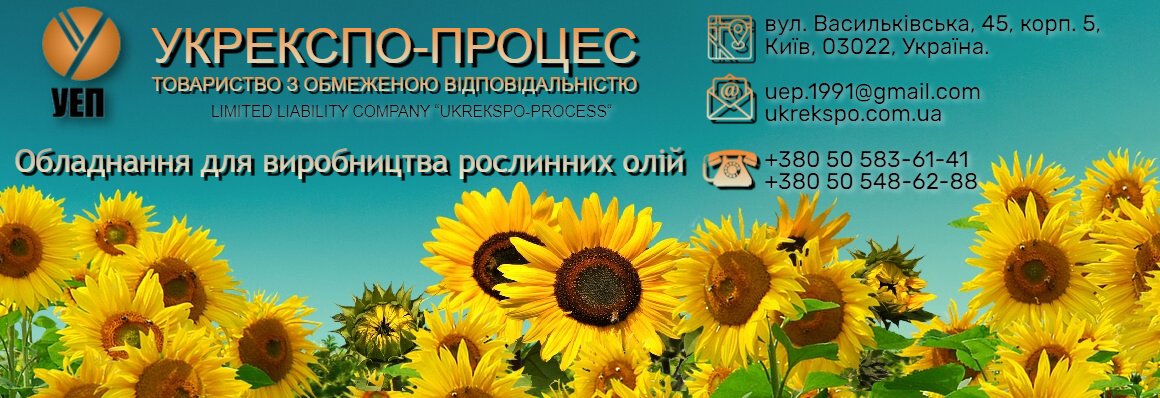
Filters
FILTERS FOR VEGETABLE OIL CLEARING
The productivity increase for vegetable oil filters, which use filtering partitions, could be reached by:
1) Increase of filtering contact surface.
This method is limited by possibilities of the filter design.
2) Pressure increase during filtration process.
Pressure increase during the filtration process leads to loss of quality for the filtration.
3) Viscosity reduction of the filtered vegetable oil by increasing its temperature.
In this case, there could be a deterioration of the vegetable oil quality after the filtration as waxy substances come into liquid phase (which could not be stopped by filtration partitions) as these substances are always present in the oil. After cooling these substances crystallize, forming a «netting» of suspended particles which leads to deterioration of vendibility of the vegetable oil.
4) Decrease of a sediment resistivity.
This method is the most effective one. It can be reached by diminution of sediment compressibility as a result of application of supplementary filtering substances. The most widespread supplementary filtering substances are diatomite and perlite.
Disadvantages for use of diatomite and perlite.
А) Coating of a filtration partition with a bed of additional substance (inwash).
The coating is done by preparing of dispersion of additional substance and vegetable oil. During the process there is carried out the prepared solution circulation up to full precipitation of the additional substance. Usually the thickness of a previously washed in bed is 1-2mm.
The mass concentration of the additional substance for the pre-bed inwash is some 1-5%. If too big concentrations are selected there could appear a loose pre-bed. Too low concentration could lead to filter bridging with the additional substance itself.
B) Adding of additional substance to the filtered oil.
Roughly, the quantity of additional substance, which is added to the unpurified oil, must be equal to a concentration of its impurities. If sort and quantity of the additional substance are chosen in a right way this could lead to filtration speed increase as the sediment resistivity goes down. Usually, the mass concentration of additional substances is 0.2-0.6%.
C) Covering by thick bed of additional substance for deep filtration (used at low concentration of impurities up to 0.01% by mass). The thickness of the washed in bed of 1-2.5kg/m reaches 3-10mm.
The A and B methods are widely used and could be applied as separately both in combinations. If additional substance is added to the unpurified oil one must choose, in the course of time, more rough sort than for the pre-bed inwash. The disadvantage for use of perlite is sediment cracking when pressure changes. For quality improvement of filtered oil, sometimes, there are added adsorbents (activated carbon, bleaching clays, silica gel and others), which retain fine phase of mechanical impurities in the vegetable oil.













